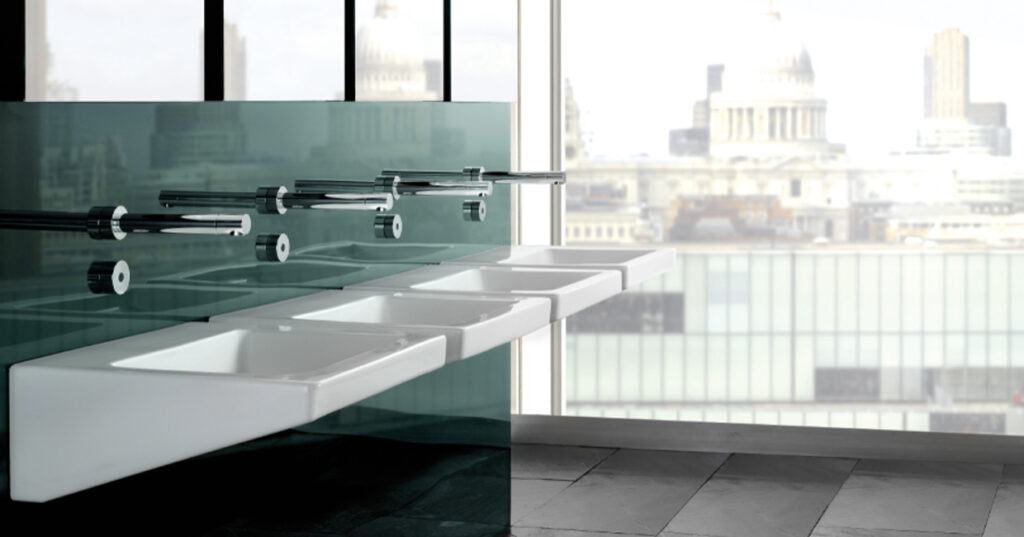A new study into the impact commercial washroom design can have on user experience, commissioned by manufacturer Armitage Shanks and led by chartered architect and academic at the Belfast School of Architecture, Dr Saul Golden, has revealed that wellbeing is the number one social factor that designers think will impact washroom design over the next five years.
The report, entitled ‘Creating better washrooms’, found that nine in 10 office washroom designers believe this space can have an impact on end users’ wellbeing – a view that is shared by three quarters of office workers themselves. Sixty-four per cent of office workers surveyed even said that workplace washrooms affect their general job satisfaction.
The findings of the report demonstrate a strong link between commercial washrooms and employee health and wellbeing – an increasingly vital asset for organisations looking to attract and retain the best employees and improve their brand image.
As one of the leading manufacturers of private and public bathroom solutions, Armitage Shanks commissioned ‘Creating better washrooms’ as part of its commitment to working across urban development, architecture and residential design to provide washroom solutions that shape the future of modern living. In the UK, around 73% of designers agreed that washrooms are the most difficult rooms to design and plan in commercial projects.
The report was launched in front of media and customers during the company’s ‘Washroom Week’ – a series of insight-led events aimed at the architecture and design communities. The launch event featured an expert panel talk examining the findings and their implications on the world of washrooms.
The panel comprised Dr. Saul Golden, renowned ceramics designer, Robin Levien, leading architectural consultant, Hsi Sung Thomas and design historian, Libby Sellers. The group, chaired by London Design Guide editor, Max Fraser, discussed the conclusions and focused on changes around sustainability, gender, social media and technology within the washroom space.
The unique study surveyed 2,000 office workers and 400 commercial washroom designers from across Europe on a range of topics, including wellbeing, gender, sustainability, technology and social media. This data was then compared with global studies to outline how designers can deliver more effective and impactful spaces that meet the needs of end users – now and in the future – in light of changing work-life patterns, demographics and technological innovation.
“The way people use commercial washrooms is undoubtedly changing as society becomes increasingly centred on city-based living, working and leisure activities,” says Stephen Ewer, Managing Director of Ideal Standard UK (Armitage Shanks’ parent company). “Given the evidence linking washrooms to improved job satisfaction and productivity, it’s also clear that there must be a move away from design that focuses solely on hygiene and utilitarian features, and towards design that considers personal comfort and other factors that affect wellbeing.
“This study forms part of our wider commitment to positively impact the future of modern living through evidence-based design and provides a clear demonstration that there needs to be a greater focus on washroom quality in line with end user expectations. The key to achieving this is through sustained collaboration; only by working closely with architects, designers and construction companies, as well as end users, will we be able to deliver impactful washrooms that go beyond mere function and rightfully play a central role in improving wellbeing and enhancing the lives of those who use these vital everyday spaces.”
To download the full ‘Creating better washrooms’ report, visit: https://www.idealspec.co.uk/resources/whitepapers.html



